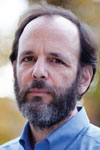Últimos assuntos
Tópicos mais visitados
Tópicos mais ativos

The voice of science: let's agree to disagree
Página 1 de 1
09082012

 The voice of science: let's agree to disagree
The voice of science: let's agree to disagree
Published online 5 October 2011 | Nature 478, 7 (2011) | doi:10.1038/478007a
Column: World View
The voice of science: let's agree to disagree
Consensus reports are the bedrock of science-based policy-making. But disagreement and arguments are more useful, says Daniel Sarewitz.
 Daniel Sarewitz
Daniel Sarewitz
When scientists wish to speak with one voice, they typically do so in a most unscientific way: the consensus report. The idea is to condense the knowledge of many experts into a single point of view that can settle disputes and aid policy-making. But the process of achieving such a consensus often acts against these goals, and can undermine the very authority it seeks to project.
My most recent engagement with this form of penance is marked this week with the release of Geoengineering: A National Strategic Plan for Research on Climate Remediation. Sponsored by the Bipartisan Policy Center in Washington DC, the report reflects more than a year of discussion between 18 experts from a diverse range of fields and organizations. It sets out, I think, many valuable principles and recommendations.
The discussions that craft expert consensus, however, have more in common with politics than science. And I don't think I give too much away by revealing that one of the battles in our panel was over the term geoengineering itself.
This struggle is obvious in the report's title, which begins with 'geoengineering' and ends with the redundant term 'climate remediation'. Why? Some of the committee felt that 'geoengineering' was too imprecise; some thought it too controversial; others argued that it was already commonly used, and that a new term would create confusion.
I didn't have a problem with 'geoengineering', but for others it was a do-or-die issue. I yielded on that point (and several others) to gain political capital to secure issues that had a higher priority for me. Thus, disagreements between panellists are settled not with the 'right' answer, but by achieving a political balance across many of the issues discussed.
This political essence of consensus leads to other difficulties. Ask a panel to address broad questions — future directions for a field, say, or ways to improve a government programme — and the recommendations that come back are typically bland and predictable. New and controversial ideas are inherently difficult for experts to agree on. In the absence of consensus, the default position is simply to call for more research — the one recommendation that most scientists can get behind.
Sometimes, expert panels are asked to find consensus on narrow technical questions at the heart of public controversies. The hope is that a unified scientific voice will resolve the dispute, but it rarely works out that way. In 2000, the US National Academies assembled climate experts to resolve discrepancies in surface and satellite climate temperature records, as if this would help to settle the political debate. A decade on, it is clear that the goal was not met.
And in 2009, at the height of the US debate on health-care reform, the US Preventive Services Task Force released a consensus report on the risks and benefits of mammograms. Rather than clarifying anything, the key recommendation — that mammograms were being overutilized — became instant ammunition for reform opponents, who viewed it as a threat to patient autonomy.
The fuss over mistakes in the 2007 reports by the Intergovernmental Panel on Climate Change highlights a related problem: a claim of scientific consensus creates a public expectation of infallibility that, if undermined, can erode public confidence. And when expert consensus changes, as it has on health issues from the safety of hormone replacement therapy to nutritional standards, public trust in expert advice is also undermined.
The very idea that science best expresses its authority through consensus statements is at odds with a vibrant scientific enterprise. Consensus is for textbooks; real science depends for its progress on continual challenges to the current state of always-imperfect knowledge. Science would provide better value to politics if it articulated the broadest set of plausible interpretations, options and perspectives, imagined by the best experts, rather than forcing convergence to an allegedly unified voice.
...
Read more here/Leia mais aqui: Nature (FREE PDF GRATIS)
Column: World View
The voice of science: let's agree to disagree
Consensus reports are the bedrock of science-based policy-making. But disagreement and arguments are more useful, says Daniel Sarewitz.

When scientists wish to speak with one voice, they typically do so in a most unscientific way: the consensus report. The idea is to condense the knowledge of many experts into a single point of view that can settle disputes and aid policy-making. But the process of achieving such a consensus often acts against these goals, and can undermine the very authority it seeks to project.
My most recent engagement with this form of penance is marked this week with the release of Geoengineering: A National Strategic Plan for Research on Climate Remediation. Sponsored by the Bipartisan Policy Center in Washington DC, the report reflects more than a year of discussion between 18 experts from a diverse range of fields and organizations. It sets out, I think, many valuable principles and recommendations.
The discussions that craft expert consensus, however, have more in common with politics than science. And I don't think I give too much away by revealing that one of the battles in our panel was over the term geoengineering itself.
This struggle is obvious in the report's title, which begins with 'geoengineering' and ends with the redundant term 'climate remediation'. Why? Some of the committee felt that 'geoengineering' was too imprecise; some thought it too controversial; others argued that it was already commonly used, and that a new term would create confusion.
I didn't have a problem with 'geoengineering', but for others it was a do-or-die issue. I yielded on that point (and several others) to gain political capital to secure issues that had a higher priority for me. Thus, disagreements between panellists are settled not with the 'right' answer, but by achieving a political balance across many of the issues discussed.
This political essence of consensus leads to other difficulties. Ask a panel to address broad questions — future directions for a field, say, or ways to improve a government programme — and the recommendations that come back are typically bland and predictable. New and controversial ideas are inherently difficult for experts to agree on. In the absence of consensus, the default position is simply to call for more research — the one recommendation that most scientists can get behind.
Sometimes, expert panels are asked to find consensus on narrow technical questions at the heart of public controversies. The hope is that a unified scientific voice will resolve the dispute, but it rarely works out that way. In 2000, the US National Academies assembled climate experts to resolve discrepancies in surface and satellite climate temperature records, as if this would help to settle the political debate. A decade on, it is clear that the goal was not met.
And in 2009, at the height of the US debate on health-care reform, the US Preventive Services Task Force released a consensus report on the risks and benefits of mammograms. Rather than clarifying anything, the key recommendation — that mammograms were being overutilized — became instant ammunition for reform opponents, who viewed it as a threat to patient autonomy.
The fuss over mistakes in the 2007 reports by the Intergovernmental Panel on Climate Change highlights a related problem: a claim of scientific consensus creates a public expectation of infallibility that, if undermined, can erode public confidence. And when expert consensus changes, as it has on health issues from the safety of hormone replacement therapy to nutritional standards, public trust in expert advice is also undermined.
The very idea that science best expresses its authority through consensus statements is at odds with a vibrant scientific enterprise. Consensus is for textbooks; real science depends for its progress on continual challenges to the current state of always-imperfect knowledge. Science would provide better value to politics if it articulated the broadest set of plausible interpretations, options and perspectives, imagined by the best experts, rather than forcing convergence to an allegedly unified voice.
...
Read more here/Leia mais aqui: Nature (FREE PDF GRATIS)

Eduardo- Mensagens : 5997
Idade : 54
Inscrição : 08/05/2010
Permissões neste sub-fórum
Não podes responder a tópicos
 Início
Início








 Seja fã Forumeiros
Seja fã Forumeiros
» Acordem adventistas...
» O que Vestir Para Ir à Igreja?
» Ir para o céu?
» Chat do Forum
» TV Novo Tempo...
» Lutas de MMA são usadas como estratégia por Igreja Evangélica para atrair mais fiéis
» Lew Wallace, autor do célebre livro «Ben-Hur», converteu-se quando o escrevia
» Ex-pastor evangélico é batizado no Pará
» Citações de Ellen White sobre a Vida em Outros Planetas Não Caídos em Pecado
» Viagem ao Sobrenatural - Roger Morneau
» As aparições de Jesus após sua morte não poderiam ter sido alucinações?